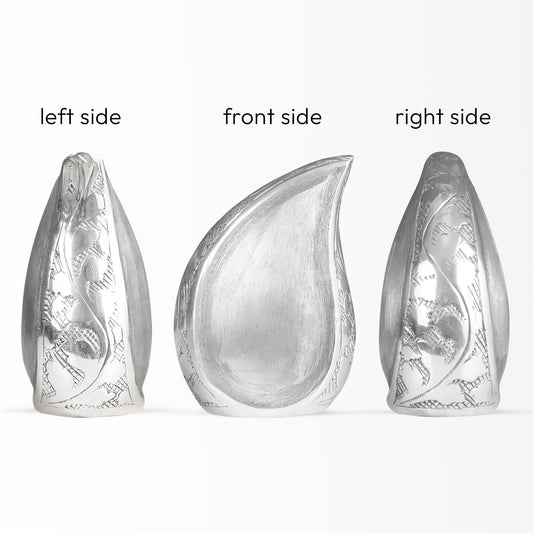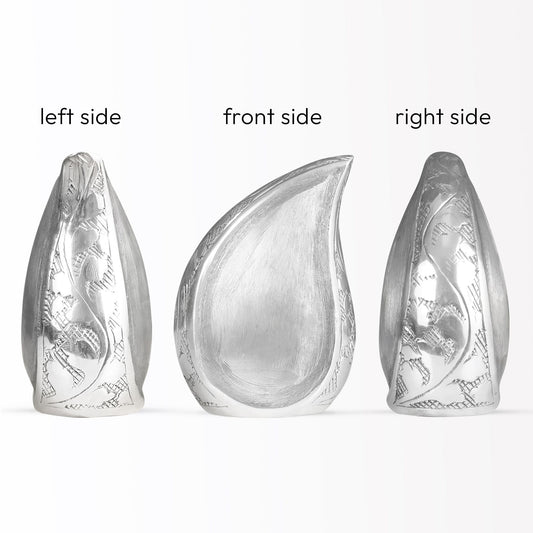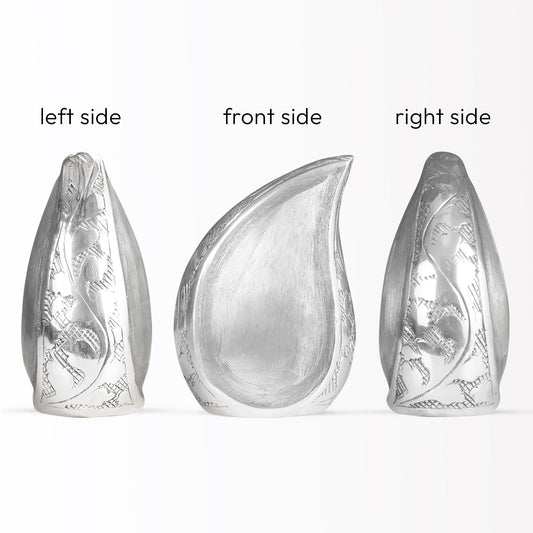Popular Urns
Differences in Cremation Laws of Tennessee and Mexico

Tennessee cremation laws will thus override the will of the deceased individual and the family concerns as well as regulatory requirements that ensure public health and safety. Cremation laws in Tennessee have nothing to do with the former since the latter has a really heterogeneous set of regulations from the states but more culturally respectable to the traditional method of burial and procedural requirements which are varied.
Tennessee Laws Regarding Cremation:
Only through a written declaration of the next of kin or an agent can a cremation authority be enacted in Tennessee. The state of Tennessee is caught up in a nationwide trend- most of its states' precedence towards arriving at the decision is that it depends basically on a principle of relatedness with the family ties.
However, there could be a scenario wherein a local authority or even courts may decide the case even without an authorized individual to issue any permits or approval.
Tennessee statute likewise mandates crematories within Tennessee's jurisdiction to have its licenses to facilities, environment controls and also monitor the process such that the wrong cremation of a corpse is avoided. It needs to be a single cremation unless double cremation was made prior. Further, a 48-hour waiting period must elapse from the time of death prior to the cremation of a body in Tennessee.
This is sufficient for any last wills and testaments or other objections to be resolved. Ashes may be scattered, interred, or contained in an urn, although some will require permits or landowner permission.
Laws of Mexico regarding Cremation:

Mexico also has its own specific and sometimes different laws, that vary from state to state in being more demanding or complex. Several states within Mexico allow only cremation without any objection even by a member of the family; in almost all such instances and in some cases of death, an autopsy report as well as a death certificate needs to be presented prior to cremation. A couple of states require a wait for 24 hours post a verified death.
More so, it is in a country such as Mexico. Cremation is less prevalent than that of Tennessee as it focuses on more cultural and historical burial practices and in modern times adapts to a growing inclination towards cremation following cultures and traditions.
Most states in Mexico have enacted legislations providing for the dispersal of remains or burial within private or public lands. In many other states, scattering in public areas is prohibited. Further, Mexican mortuaries and crematories can only commence operations once they have secured a permit issued by the municipal or state health departments to be compliant with health and environment provisions.

Key Differences
1. Consent Process: In Tennessee, there must be a written consent obtained from the next of kin whereas in Mexican law, family agreement, and sometimes even autopsy, is imposed on the concerned party.
2. The Cultural Bias: Mexico is more oriented to the type of burial whereas Tennessee is laid-back and very liberal in its reception towards cremations.
3. Residues Handling: Flexibility is evident in Tennessee, however with Mexican rules, scattering is not allowed in a public space.
4. Regulatory Body Supervision: The Tennessee bodies are highly centralized while the Mexican bodies occur largely on the municipal or state levels but require more paper works.
This reflects cultural preferences and issues: its place for individualism in favor of Tennessee, the strength of regime for traditional elements preserved through regulation in Mexico.
ALSO READ:
A Guide to Funeral and Wake Etiquette: What to Know

























































































